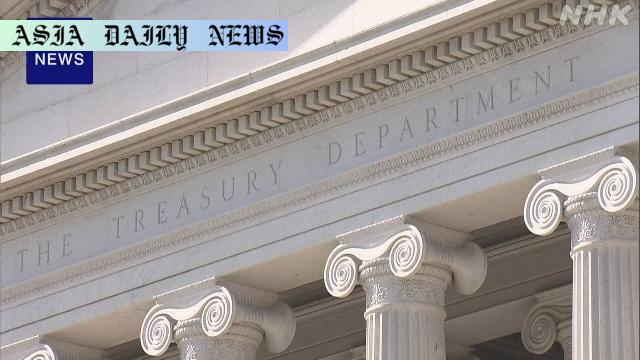Sanctions: The US Treasury targets 115 entities, individuals, and vessels linked to Iranian oil exports for funneling funds to Tehran.

The Largest Sanctions Yet: Overview of US Measures
The United States has taken a bold step in its ongoing campaign to intensify economic pressure on Iran. Announced by the US Treasury Department, sweeping sanctions have been implemented against a massive network tied to Iranian oil and cargo operations. These sanctions target over 115 individuals, entities, and vessels that the Treasury alleges funnel financial resources to Tehran by exporting crude oil and other petroleum products.
This latest action underscores the extensive influence of the sanctioned network, which reportedly operates under the leadership of a key figure linked to the Iranian regime—Ali Shamkhani’s son. Shamkhani, a close ally and top advisor to Supreme Leader Ayatollah Ali Khamenei, is considered highly influential in the country’s political and defense strategies. According to Treasury Secretary Scott Bessent, this set of sanctions is the most expansive since the “maximum pressure” campaign initiated during the administration of former President Donald Trump.
The Connection Between Oil Revenues and the Iranian Regime
A key assertion accompanying these sanctions is the alleged misuse of profits generated from Iran’s oil exports. The United States accuses Tehran of funneling proceeds from these operations into activities that bolster its regime—potentially including its contentious nuclear program. As nuclear negotiations between Washington and Tehran remain at an impasse, efforts to increase economic and political pressure on Iran have steadily escalated.
Global trade, specifically within the shipping and energy sectors, plays a pivotal role in sustaining financial networks like the one targeted by the US Treasury. Analysts suggest that removing key vessels or intermediaries from the supply chain could severely disrupt Tehran’s ability to sell its crude oil products internationally. Each move by Washington adds complexity to Iran’s pathway toward continued economic growth under sanctions.
Implications on Global and Middle Eastern Dynamics
This significant move has broader implications beyond the bilateral tensions between the United States and Iran. Other Gulf nations, regional stakeholders, and international allies weigh their stances as these sanctions disrupt economic partnerships and alliances. The Middle East has long been impacted by geopolitical struggles involving Iran’s nuclear ambitions and the influence of US economic measures in safeguarding allied interests.
Additionally, economic restrictions of this scale raise questions about potential ripple effects in the oil market and global trade. Sanctions targeting over 115 vessels and individuals illustrate how enormous shipping networks underpin the broader tensions in US policy towards Tehran. Insightful observers note that even though Iran’s defiant stance persists, the sanctions reflect Washington’s commitment to counter its adversary’s actions on a global scale.
Commentary
Complex Interactions Between Economics and Geopolitics
The expansive sanctions imposed on Iran by the United States underscore the complex interplay between economics and geopolitics. Targeting a vast array of entities and individuals within the Iranian shipping network is not merely an economic measure; it serves as a statement of intent and a strategy to curb Tehran’s controversial nuclear ambitions.
The Broader Ramifications of Economic Pressure
Beyond the immediate impact on Iran, these sanctions are likely to have broader ramifications across the global oil trade. By targeting 115 vessels and significant players in the Iranian shipping industry, Washington risks disrupting supply chains that connect Tehran to international markets. This could lead to fluctuating oil prices and ripples throughout trading blocs. Yet, the United States seems to have calculated these risks as part of its broader campaign to isolate Iran both politically and economically.
The Ongoing Narrative of US-Iran Relations
The sanctions also bring into focus the ongoing narrative surrounding US-Iran relations. On the one hand, Washington pursues avenues to bring Iran to the negotiating table over its nuclear aspirations. On the other hand, Tehran’s leadership grows increasingly entrenched in its resolve to maintain uranium enrichment activities and defy international pressure.
In conclusion, this development serves as a pivotal moment within a broader policy framework aimed at ensuring compliance with international norms. Whether these sanctions achieve their stated objective remains to be seen, but they undeniably emphasize the role of economic tools as levers of power in global diplomacy.


